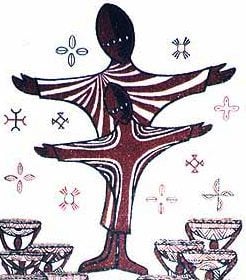Here we are, one day after Pentecost and life is back to normal.
Hearing the text of the Book of Acts read in multiple languages was exhilarating last week. This week it feels like happy-talk.
Watching my United Methodist sisters and brothers navigate yet another General Conference is painful. It is difficult to watch the members of a great church with a rich tradition struggle to remain civil with one another. I am mindful of just how much those dynamics have been a part of my own denomination’s recent history and I grieve for the church.
Thoughtful writers from various quarters have called for a new denomination or a regional approach to doing church in an attempt to find a way forward. Others have declared the effort to be “global” a non-starter.
If those are the only options, then we should strike Sunday’s celebration from the Protestant calendar. Christian unity can’t and doesn’t mean absolute uniformity, but the claims of Pentecost can’t possibly find expression in a church that divides itself into ever-smaller cohorts around single issues – pro or con.
Why? Because those who favor schism and division as a good or acceptable thing fail to realize that if all church is regional, then it can be argued that all church is local, and if all church is local then there is, ultimately, no argument against radical individualism. In that case, there is no church at all.
How did we get here?
The idolatry of causes: the elevation of one position on a single issue to the exclusion of any careful listening for the voice of God.
The absence of a sound ecclesiology: the tendency to think of the church as a churchy version of a global corporation.
The passion for legislating everything on a national or an international basis without allowing pastoral space to care for people individually and not just as a category of human being.
And a misreading of the Pentecost story itself…
This last Sunday, like a lot of parishes, our church read the story from Acts 2 in multiple languages, at the same time. I know a bit of Spanish, a lot of German, and English is my native language; and there were still other languages in the mix. But as the story was read, it was impossible to pull them apart.
I suspect that when Luke says that those who heard the disciples speak were “bewildered,” they were – quite simply – bewildered. But when you consider what they were able to hear, how long it took them to grasp what they heard, how differently they understood what they heard (based upon the differences that they brought to the experience), and how quickly they acted on it, the whole picture also becomes more emblematic of the church that all of us share today.
Perhaps we should also remember why Luke thought of that story as emblematic. If he was at pains to argue that the church’s redemptive work reached across endless division in a world that he knew to be divided, then perhaps we should hold out hope for a world we blithely assumed would see the Gospel in the same way as we do and doesn’t.
I don’t say that with ease. I realize that people on both sides of the church’s differences will be unhappy with unanswered questions and unaddressed needs. But insisting on unanimity on our own terms is not an antidote to our unwillingness to live with the bewilderment that always follows on the work of the Holy Spirit.
What is needed, instead, are these things:
- A willingness to live in humility, acknowledging our limited ability to understand the will of God,
- A willingness to remember that others need our patience as they attempt to understand the will of God in their own imperfect fashion,
- Recognition that the work of the Kingdom is begun and advanced in this world but is never complete,
- The realization that the work of God is advanced on multiple fronts in our lives and in our world, and that the advance of that work is always fragmentary and incomplete,
- The deep conviction that the church — as the Body of Christ — is both the instrument of God’s redemptive work and our redemptive destiny,
- The courage to work for what we understand the will of God to be, without living as if we are the sole arbiters of what constitutes the will of God,
- And the expectation that God’s Kingdom will come in all its fullness, which sustains our efforts in the present and gives us hope for the future.
With those gifts — and God’s help — we might just navigate our bewilderment.
















